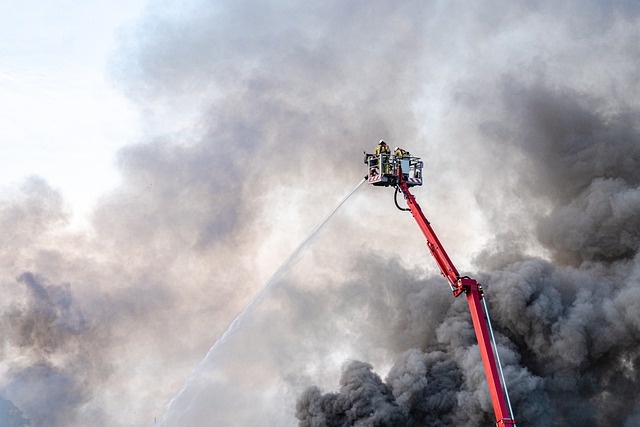The Importance of Self-Awareness in Personal Relationships
Self-awareness is a concept that echoes throughout many aspects of life, especially in the context of personal relationships. When we talk about self-awareness, we’re not just discussing knowing our likes and dislikes. We’re delving into a profound understanding of ourselves, our emotions, and how these facets influence our interactions with others. In personal relationships, this level of insight can significantly enhance the quality and depth of connections we foster with friends, family, and romantic partners.
Understanding self-awareness requires diving deeply into its components. It involves recognizing our emotional triggers, understanding our behavioral patterns, and reflecting on our motivations and desires. Imagine a situation where you’re feeling frustrated with a loved one. Without self-awareness, you might lash out without understanding why you’re upset. However, if you take a moment to reflect, you might realize that your frustration arises from a longstanding issue you haven’t addressed. This realization allows you to communicate your feelings more effectively, opening pathways to resolve conflicts healthily.
Now, let’s explore how self-awareness can transform conflicts in our personal relationships. Conflicts are inevitable, and how we handle them often determines the strength of our relationships. With self-awareness, individuals can approach conflict with a level-headed mindset. Instead of reacting impulsively, self-aware individuals can pause and think critically about the situation. This critical thinking can involve asking questions like, “What am I really feeling?” or “How did my actions contribute to this situation?” Such reflections not only help in addressing the immediate conflict but also in preventing future misunderstandings, as both parties can work together with a clearer understanding of each other’s perspectives.
Moreover, self-awareness fosters empathy. When we understand ourselves, we can better appreciate the feelings and experiences of those around us. For instance, if we recognize that we often take things personally, we can remind ourselves that our partner’s bad day might not have anything to do with us. This realization allows us to respond with compassion rather than defensiveness. As a result, our interactions become more harmonious, breeding stronger and more resilient personal relationships.
In addition to enhancing communication and empathy, self-awareness significantly contributes to personal development. The journey of self-exploration and recognizing our strengths and weaknesses naturally encourages us to grow. As we become more aware of our flaws, we can take actionable steps toward self-improvement. For example, if someone identifies that they struggle with anger management, they can actively seek resources, courses, or even therapy to improve this aspect of themselves. This desire for growth not only enriches the individual but also positively impacts their relationships. A partner who actively works on their personal development becomes more relatable and attractive to others, creating a better environment for connections to flourish.
Let’s also consider the role of self-awareness in setting healthy boundaries. Understanding ourselves deeply aids immensely in recognizing what we need from our relationships. This clarity is crucial in establishing boundaries that protect our well-being. For instance, if someone is aware of their limits regarding emotional availability, they can clearly communicate these to their partner or friends, preventing feelings of resentment or burnout. Healthy boundaries lead to more fulfilling and balanced relationships, as each party knows their own needs and respects those of others.
When it comes to romantic relationships, self-awareness plays an even more pronounced role. At the foundation of a healthy romantic relationship lies the need for both partners to be self-aware. Each person needs to understand their attachment styles, emotional triggers, and past relationship patterns. This understanding doesn’t just help in addressing issues that arise but also enriches the joy experienced within the relationship. Couples who invest time in exploring their self-awareness together often find themselves more connected and understanding, ultimately leading to a more profound and enriching partnership.
However, attaining self-awareness doesn’t happen overnight. It’s a continuous journey marked by reflection and personal growth. Many individuals can begin this process through mindfulness practices such as meditation or journaling. These activities encourage individuals to look within and contemplate their thoughts and feelings. By regularly engaging in self-reflection, people cultivate a habit of examining their behaviors and emotions, leading to increased self-awareness over time.
Additionally, seeking feedback from trusted friends or family members can provide valuable perspectives that we might overlook. Sometimes, we’re too close to a situation to see it clearly. Trusted ones can offer insights that lead to breakthroughs in understanding ourselves. A respectful conversation about how our actions impact others can clarify grey areas in our self-awareness journey. However, it is crucial to approach such discussions with an open heart and mind, ready to receive information without becoming defensive.
Engaging in personal development workshops or therapy can also enhance self-awareness. Therapists, coaches, and workshops focused on personal growth provide frameworks and tools to increase insight into our thoughts and behaviors. These professional settings allow for exploration and discussion in a safe space, guiding individuals toward a better understanding of their emotional world, leading to stronger personal relationships overall.
Lastly, never underestimate the role of journaling in enhancing self-awareness. Writing down thoughts, feelings, and daily experiences creates a tangible way to reflect on emotions. Over time, patterns emerge that illustrate how certain triggers or interactions affect our emotional states. This practice allows individuals to identify recurring themes in their relationships, giving them the opportunity to address these before they lead to larger conflicts.
Frequently Asked Questions
1. What is self-awareness?
Self-awareness is the conscious knowledge of one’s own character, feelings, motives, and desires. It allows individuals to understand their emotions and how these emotions affect their behavior and interactions with others.
2. How can self-awareness improve personal relationships?
Self-awareness enhances communication, empathy, and conflict resolution. It helps individuals understand their emotions, allowing them to express themselves better and react more thoughtfully in interpersonal situations.
3. What practices can help me become more self-aware?
Practices such as mindfulness meditation, journaling, seeking feedback from others, and engaging in therapy or personal development workshops can significantly enhance self-awareness.
4. Why are boundaries important in relationships?
Boundaries are crucial as they protect individuals’ emotional and physical well-being. They help maintain a balance in relationships by allowing each person to communicate their needs and limitations clearly.
5. How does self-awareness contribute to personal development?
Self-awareness allows individuals to recognize their strengths and weaknesses, which facilitates targeted personal growth. By understanding themselves better, they can set realistic goals for improvement and work towards becoming better individuals in personal and professional relationships.



